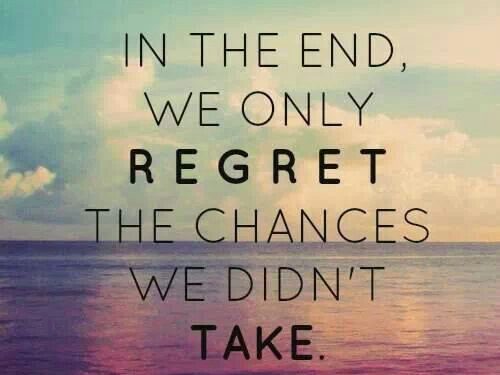What is it about human nature that causes us to take on so much risk in our lives?
Risk comes in so many forms. Risks to our lives, physical wellbeing, relationships, employment and finances are just a sampling of the different forms we encounter voluntarily.
We take on risk all the time. Risk is a situation or exposure to danger, harm or loss. From the definition alone you would think that we would all go out of our ways to avoid risk, but too often the opposite seems to take place.
I get risk related to adrenaline. Fast cars, roller coasters, bungee jumping, skydiving are controlled forms of risk. There is still significant danger associated with the acts, but when we believe the adrenaline seeking acts are done in somewhat of a controlled environment with known safety precautions, then the thought is that the risks is at least minimized.
As you can see, I am probably guilty and a little off when it comes to openness in engaging in risky behavior, cause I mentioned bungee jumping (which I have done) and skydiving (which is on my active bucket list) as controlled risk. Any activity which there is a possibility of dying or receiving significant injuries should probably be off the table, yet skydiving is still on the to do list.
One recently amended bucket list item has been wanting to climb Mt. Everest. I still have a desire to climb one of the world’s highest peaks, but recent overcrowding of Everest during the tourist permitted climbing season, has made me re-calculate the risks versus rewards. 275 people have died out of the total of 6,958 who have attempted to climb to the mountain’s summit. That is a total of nearly 4 percent and that percentage is nearly 5.5% in the last several years as deaths have increased relating to too many attempting climbers. That percentage does not include the thousands of climbers who have suffered significant injuries including loss of fingers and toes due to frostbite.
On the other hand while the idea of jumping out of a plane seems inherently dangerous, take into consideration that in the US there are approximately 3.2 million skydive jumps per year of which 23 on average result in death. You cannot minimize how tragic that is for the 23 people and their families, but in reality it is a very low percentage/risk of death associated with the activity in the US.
I have always tried to calculate risk and the potential reward associated with any acts that are seen as inherently dangerous. I have just never understood people who take unnecessary risks related to minimal rewards. As I have gotten older this analysis has not just been applied to my physical well being, but to financial matters as well.
As a serial entrepreneur, my appetite for risk has changed significantly over the years. Childless, young and overconfident of my hustling prowess, made me the perfect candidate for risky financial ventures because I always believed in my abilities to make it back. Most cases that has been true, but there have been situations that made me put my stability and that of investors (i.e. family and friends) in uncomfortable situations. I would like to think that I have finally turned a corner in minimizing risk in future endeavors without limiting my entrepreneurial spirit.
I have never understood why people put their health (or fiscal well being) at risk by engaging in unprotected sex outside of monogamous relationship, or cheat when they jeopardize risking their families. I mean I get the immediate gratification of each potential act, but put some protection on yourself or whatever situation you engage in.
Obviously it is somewhat rhetorical to ask why we all engage in risky behavior. Our selfishness often supersedes our rationality. Risk taking really does relate to human nature. We like the rush of “danger” or bad acts nearly as much as we just love the immediacy of self-gratification.
If risk taking is going to be part of your program, then it needs to be accommodated with better evaluation. Risk must always be measured with the reward. Short-term benefits are not usually a justification for risky behavior, but clearly adrenaline seeking risk falls within that exception.
There are so many different scenarios and circumstances that determine risk and rewards. It is often personal as well as to not be clearly defined or categorized. All that I can say with a degree of clarity… is to give serious thought before engaging in risky behavior. No one can always say what is appropriate or too risky for someone else, but you should always follow a guide of actually deciding if something is worth it.
Good judgment…that is a whole other issue to be examined for another time.
If you enjoyed this piece, please be sure to look at others in diaryofamadmind.com
#risk #riskybehavior #thinkbeforeyouact

